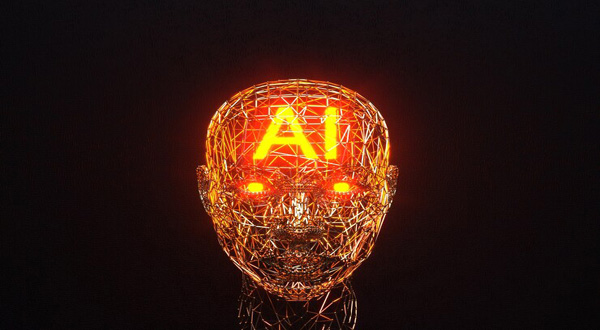Artificial Intelligence Course for Beginners: A Comprehensive Guide
- Update Time : Wednesday, March 13, 2024
- 23 Time View

Artificial Intelligence Course for Beginners: A Comprehensive Guide: Are you intrigued by the world of artificial intelligence (AI) but unsure where to start? Look no further! In this beginner’s guide, we’ll explore the exciting realm of AI, breaking down complex concepts into simple, digestible bites. Whether you’re a complete novice or just dipping your toes into the AI pool, this guide is designed to demystify the fundamentals and set you on the path to understanding and mastering artificial intelligence.
Table of Contents
| Sr | Headings |
|—–|———————————————-|
| 1. | What is Artificial Intelligence? |
| 2. | Why Learn AI? |
| 3. | Understanding Machine Learning |
| 4. | Essential Python for AI |
| 5. | Exploring Neural Networks |
| 6. | Practical Applications of AI |
| 7. | Ethics in Artificial Intelligence |
| 8. | Getting Started with AI Projects |
| 9. | Resources for Further Learning |
| 10. | Conclusion |
| 11. | FAQs: Frequently Asked Questions |
- What is Artificial Intelligence?
Artificial Intelligence, or AI, is the simulation of human intelligence processes by machines, especially computer systems. It encompasses a wide range of technologies that enable computers to perform tasks that typically require human intelligence, such as visual perception, speech recognition, decision-making, and language translation.
- Why Learn AI?
With AI rapidly shaping various industries, from healthcare to finance, learning about AI opens up a world of opportunities. Whether you’re interested in advancing your career, solving complex problems, or simply understanding the technology that powers our future, acquiring AI skills can be incredibly rewarding.
- Understanding Machine Learning
Machine Learning is a subset of AI that focuses on enabling machines to learn from data without being explicitly programmed. It involves algorithms that iteratively learn from data, identify patterns, and make decisions with minimal human intervention. Understanding the basics of machine learning is essential for anyone delving into the field of AI.
- Essential Python for AI
Python is the preferred programming language for AI and machine learning due to its simplicity and versatility. In this section, we’ll cover the basics of Python programming, including variables, data types, control structures, and functions, laying a solid foundation for understanding AI algorithms and implementations.
- Exploring Neural Networks
Neural Networks are the backbone of many AI applications, inspired by the structure and function of the human brain. We’ll delve into the workings of neural networks, including their architecture, activation functions, and training methods, demystifying this powerful tool used in image recognition, natural language processing, and more.
Read More: Unlock the World of Artificial Intelligence: A Free Course for Everyone
- Practical Applications of AI
From virtual assistants like Siri and Alexa to self-driving cars and personalized recommendations on streaming platforms, AI is ubiquitous in our daily lives. We’ll explore real-world applications of AI across various industries, showcasing how AI is revolutionizing healthcare, finance, transportation, and beyond.
- Ethics in Artificial Intelligence
As AI becomes more pervasive, ethical considerations become increasingly important. We’ll discuss the ethical implications of AI, including biases in algorithms, data privacy concerns, and the impact of automation on jobs. Understanding these ethical challenges is crucial for responsible AI development and deployment.
- Getting Started with AI Projects
Ready to dive into your first AI project? We’ll provide practical tips and resources for embarking on AI projects, including setting up development environments, accessing datasets, and collaborating with the AI community. Whether you’re interested in building a chatbot or analyzing data for insights, we’ll guide you through the initial steps.
- Resources for Further Learning
The world of AI is vast and constantly evolving. We’ll highlight various resources, including online courses, books, and communities, to continue your AI learning journey. Whether you prefer interactive tutorials or in-depth textbooks, there’s a wealth of resources available to help you expand your knowledge and skills in artificial intelligence.
- Conclusion
In conclusion, embarking on a journey to learn artificial intelligence can be both exciting and rewarding. By understanding the fundamentals of AI, exploring its applications, and considering the ethical implications, you’ll be well-equipped to navigate the ever-changing landscape of artificial intelligence.
Read More: Artificial Intelligence Coursera: A Beginner’s Guide to Unlocking the Future
- FAQs: Frequently Asked Questions
Q: What are the prerequisites for learning artificial intelligence?
A: While there are no strict prerequisites, a basic understanding of mathematics and programming concepts can be helpful.
Q: Can anyone learn artificial intelligence, or is it only for experts?
A: Absolutely! AI is for everyone, and there are plenty of resources available for beginners to get started.
Q: How long does it take to learn artificial intelligence?
A: The learning journey varies for each individual, but with dedication and practice, you can start building AI projects in a matter of months.
Q: Is artificial intelligence going to replace human jobs?
A: While AI may automate certain tasks, it also creates new opportunities and enhances productivity in various industries.
Q: What are some potential career paths in artificial intelligence?
A: AI offers diverse career paths, including machine learning engineer, data scientist, AI researcher, and AI ethicist, among others.
Embark on your journey into the fascinating world of artificial intelligence today and unlock endless possibilities!












